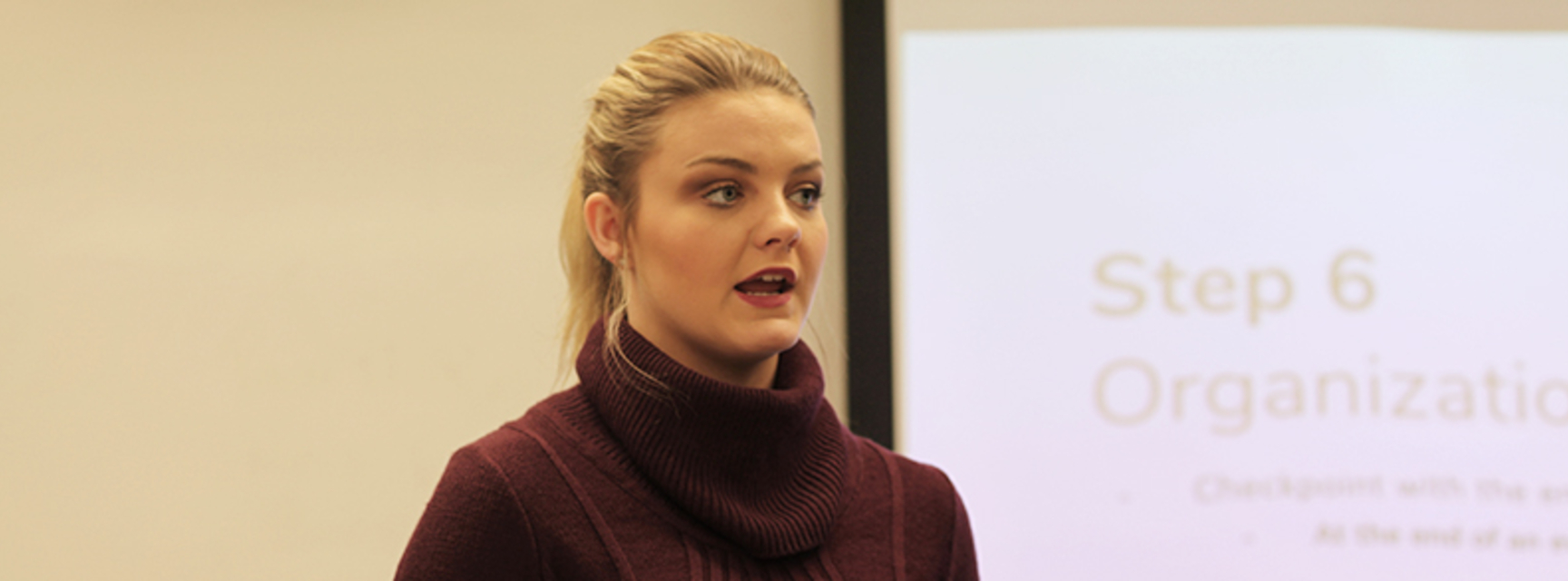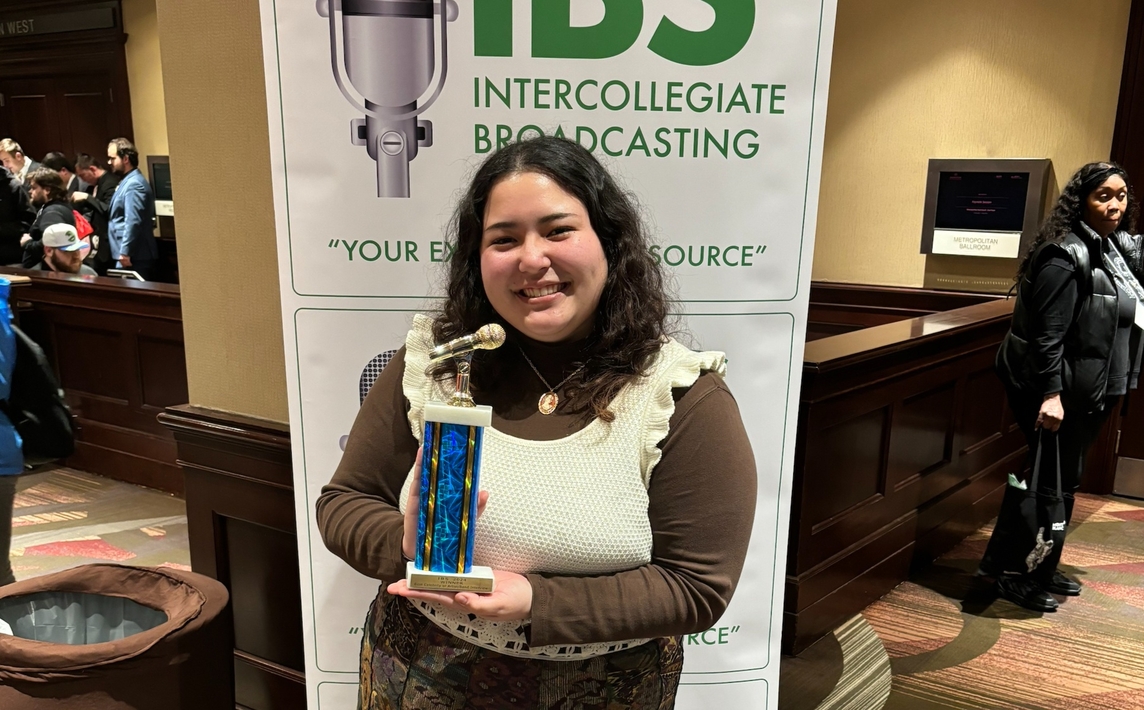Performance Learning
Performance Learning is Millikin’s hands-on approach to learning that allows you to apply the concepts of the classroom to real-world situations. With Performance Learning, you perform the actual work of your future career starting on day one. Performance Learning opportunities for Communication majors include writing social media campaigns, consulting with local clients, and creating training and informational seminars.
Career Opportunities
Our Communication graduates excel across many fields, including:
» Social Media Manager
» Sports Communication
» Content Strategist
» Advertising/Promotions Manager
» Digital Communications Manager
Communication Degree Salaries & Career Outlook
Exploring the financial rewards and career opportunities available to communication graduates in today’s dynamic job market.
Communication degrees offer competitive starting salaries with significant growth potential across various specializations. Recent data shows strong earning potential for graduates entering this versatile field.
$72,000 Average Starting Salary for Graduates
*ZipRecruiter (Oct. 2025)
These figures represent strong entry-to-mid-level compensation, with substantial room for advancement as professionals develop expertise and move into specialized or leadership roles within the field.
Top-Paying Communication Specializations
Communication professionals who advance into strategic leadership positions can command exceptional salaries. The field offers clear pathways to six-figure compensation for those who develop specialized expertise.
» Digital Marketing Director, $130,410: Directors managing digital strategy and campaigns earn strong six-figure salaries (Glassdoor)
» Public Relations Manager, $132,870: PR managers crafting organizational messaging and media relations strategies (Bureau of Labor Statistics, May 2024)
» Chief Communication Officer, $216,660: Senior executives overseeing organizational communication strategy earn top-tier compensation (Bureau of Labor Statistics, May 2024)
» Chief Marketing Officer (CMO), Up to $475,000: CMOs leading brand strategy and marketing initiatives command premium salaries at major organizations (Built In, 2025)
Strong Employment Market for Communication Graduates
Why Communication Graduates Are in High Demand
The job market strongly favors Communication degree holders, with employers across industries actively seeking their versatile skill sets. Four key trends are driving this demand:
Versatile Skills Across Industries
Communication graduates excel in diverse sectors including higher education, advertising and PR, management consulting and healthcare. Their adaptable skill set makes them valuable assets in virtually any organizational context.
Digital & Strategic Communication Focus
Growing emphasis on digital communication, content marketing and social media management creates steady demand for professionals skilled in these modern communication channels and strategies.
Essential Workplace Skills
Employers consistently prioritize core competencies like active listening, effective communication, leadership and teamwork — all fundamental components of Communication degree programs.
Clear Career Advancement Path
Communication graduates typically start in entry-level positions and can progress to management roles within five to seven years, demonstrating strong upward mobility and long-term career potential.
Tabor School of Business
Business Communication students leverage the strengths of the entire Tabor School of Business as they build their confidence, add to their resume, and gain top-paying jobs in their field after graduation. Tabor School of Business boasts:
» 11 Degrees, 6 Minors and 7 Certificates
» 180+ Internship Opportunities
» Average Class Size: 20 Students
» 10+ Student-Run Ventures
» 12- and 17-month MBA Programs
Contact Us

